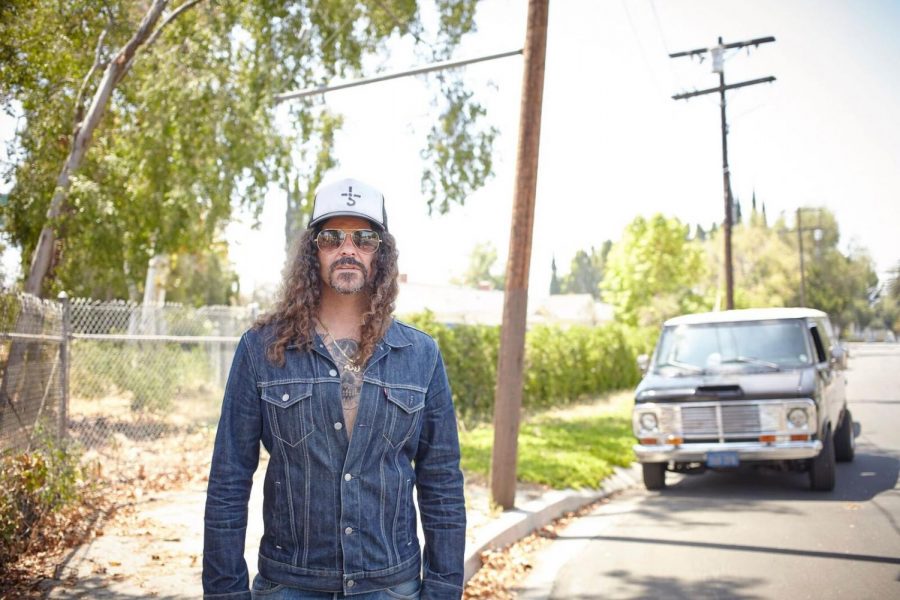‘Desert’ rocker comes to concrete jungle
Courtesy Matt Grayson
Original drummer of KYUSS, Brant Bjork, returns to Chicago for his solo tour at the Beat Kitchen, 2100 W. Belmont Ave., April 18.
April 17, 2017
From being a drummer in major rock bands to opening his own record label, Brant Bjork has been conquering the rock ‘n’ roll music industry.
The California native has been performing and writing music since he was 13 years old and has progressed to a career with major rock bands. Known as an original member of the desert rock bands KYUSS and Fu Manchu, Bjork decided to record his first solo album in 1999.
Since then, Bjork has created eight studio albums, including his latest, Tao of the Devil, released September 2016. Bjork is scheduled to perform at the Beat Kitchen, 2100 W. Belmont Ave., April 18.
The Chronicle spoke with Bjork about Tao of the Devil, rock ‘n’ roll and his solo career after KYUSS.
THE CHRONICLE: How did you decide on the name Tao of the Devil, and what inspired you to create the album?
BRANT BJORK: Something I have dabbled in for about 25 years is Taoism. I like Eastern philosophy, and I just thought it was fun: the idea of the nature of the devil and that sometimes it is okay to be a little naughty.
How did you first get involved in music?
As a kid, I was naturally attracted to the sound and rhythm of music. In my neighborhood, there was an older kid across the street who was really into KISS who turned me onto rock ‘n’ roll. From KISS, I explored contemporary rock ‘n’ roll. I stumbled upon The Ramones, and that opened the door to punk rock music. Once I discovered punk rock music, I started to develop the idea that this might be something I could do.
What was the transition like from being in a band to doing solo work?
It was difficult because it was something I have never done before. But it felt like a natural transition. I put my time in as a songwriter and as a drummer [in] a rock band, and then I decided to record my own record. I played all of the tracks and when it came time to title the record, a friend of mine said, “Why don’t you just call it Brant Bjork? It is all you,” and I couldn’t really argue with that. That is how my solo career began.
Why did you start Duna Records?
That was all an extension of my punk rock, DIY route. If you want to build something and no one is really around to assist you or wanting to invest in you, you have to do it yourself. I had to put out records, so I just started a record label. Financially, it was a challenge. I had to ask a couple of friends to help me get it started.
What caused your style to be labeled as “desert rock”?
I grew up in the desert. There was a bunch of us who were punk rockers and skateboarders who started playing rock ‘n’ roll music.
Because you have been performing for many years, how do you keep up with changes in the industry?
I don’t follow a lot of new music, but I know there is a lot of great new music out there. I have a tendency to go backward. I just like the way older music sounds, and a lot of that is because of technology. I am more attracted to old school than new school. I like old machines [more] than new machines.








